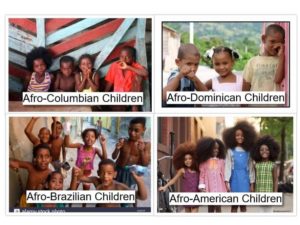African Diaspora
The world of literature is a vast tapestry woven with diverse threads of stories, experiences, and cultures. Among these, the rich tapestry of African diaspora communities stands out as a vibrant and essential part of global literary heritage. In this blog, we embark on a captivating journey to examine literature from various African diaspora communities. These literary works offer unique insights into the complex and multifaceted experiences of people of African descent living far from their ancestral homelands.
Understanding the African Diaspora
Before we dive into the literary gems of the African diaspora, let’s grasp the concept of this diaspora. The African diaspora refers to the dispersion of African people across the globe, primarily due to historical events such as the transatlantic slave trade, colonization, and migration. This diaspora has resulted in diverse communities worldwide, each with its own distinct cultural, historical, and literary identity.
African American Literature: A Powerful Voice
One of the most prominent and influential voices in the African diaspora is African American literature. Rooted in the history of slavery, the Civil Rights Movement, and ongoing struggles for justice, this literature serves as a powerful testament to resilience and resistance.
The Souls of Black Folk by W.E.B. Du Bois
Du Bois’s groundbreaking work explores the concept of double consciousness, where African Americans navigate their identity within the dominant white culture. His eloquent essays remain relevant in discussions of race and identity. Beloved by Toni Morrison
Beloved by Toni Morrison
Toni Morrison’s Pulitzer Prize-winning novel delves into the haunting legacy of slavery. Through a gripping narrative, it reflects the trauma and perseverance of the African American community.
Caribbean Literature: A Fusion of Cultures
Caribbean literature, born from a fusion of African, Indigenous, and European influences, offers a unique perspective on the African diaspora experience.
Wide Sargasso Sea by Jean Rhys Jean Rhys reimagines the backstory of the character Bertha Mason from Charlotte Brontë’s “Jane Eyre.” Set in Jamaica, the novel explores themes of identity, race, and colonialism.
The Autobiography of My Mother by Jamaica Kincaid
Kincaid’s novel is a poignant exploration of mother-daughter relationships, cultural displacement, and personal identity in the context of post-colonial Antigua.
Afro-Latinx Literature: Celebrating Diversity
Afro-Latinx literature reflects the unique experiences of people of African descent in Latin America and the Caribbean, offering a rich tapestry of stories.
The Afro-Latin@ Reader: History and Culture in the United States
This anthology edited by Miriam Jiménez Román and Juan Flores explores the history, culture, and contributions of Afro-Latinx communities in the United States, shedding light on their experiences and struggles.
Dominicana by Angie Cruz
Angie Cruz’s novel paints a vivid picture of the immigrant experience in the Dominican Republic and New York City. It delves into themes of family, love, and identity.
African Literature in the Diaspora: A Global Perspective
African literature in the diaspora encompasses a wide array of voices and experiences, reflecting the diversity of the continent and its global diaspora.
Americanah by Chimamanda Ngozi Adichie
Though not African American, Chimamanda Ngozi Adichie’s novel explores the journey of an African woman who comes to the United States for education, offering a nuanced perspective on race, identity, and immigration.
Go Tell It on the Mountain by James Baldwin
While primarily known for his African American literature, James Baldwin’s works often engage with broader themes of race and identity, resonating with African diaspora communities worldwide.
Conclusion: The Tapestry of Diasporic Literature
Literature from various African diaspora communities is a testament to the resilience, diversity, and cultural richness of these groups. Whether African American, Caribbean, Afro-Latinx, or African literature in the diaspora, these literary works offer profound insights into the complex intersections of identity, heritage, and history. They celebrate the strength of communities that have endured hardship and continue to contribute to the global tapestry of culture and storytelling. In embracing and exploring these literary treasures, we gain a deeper understanding of the shared human experience and the power of literature to bridge divides and foster connection. Read More>>